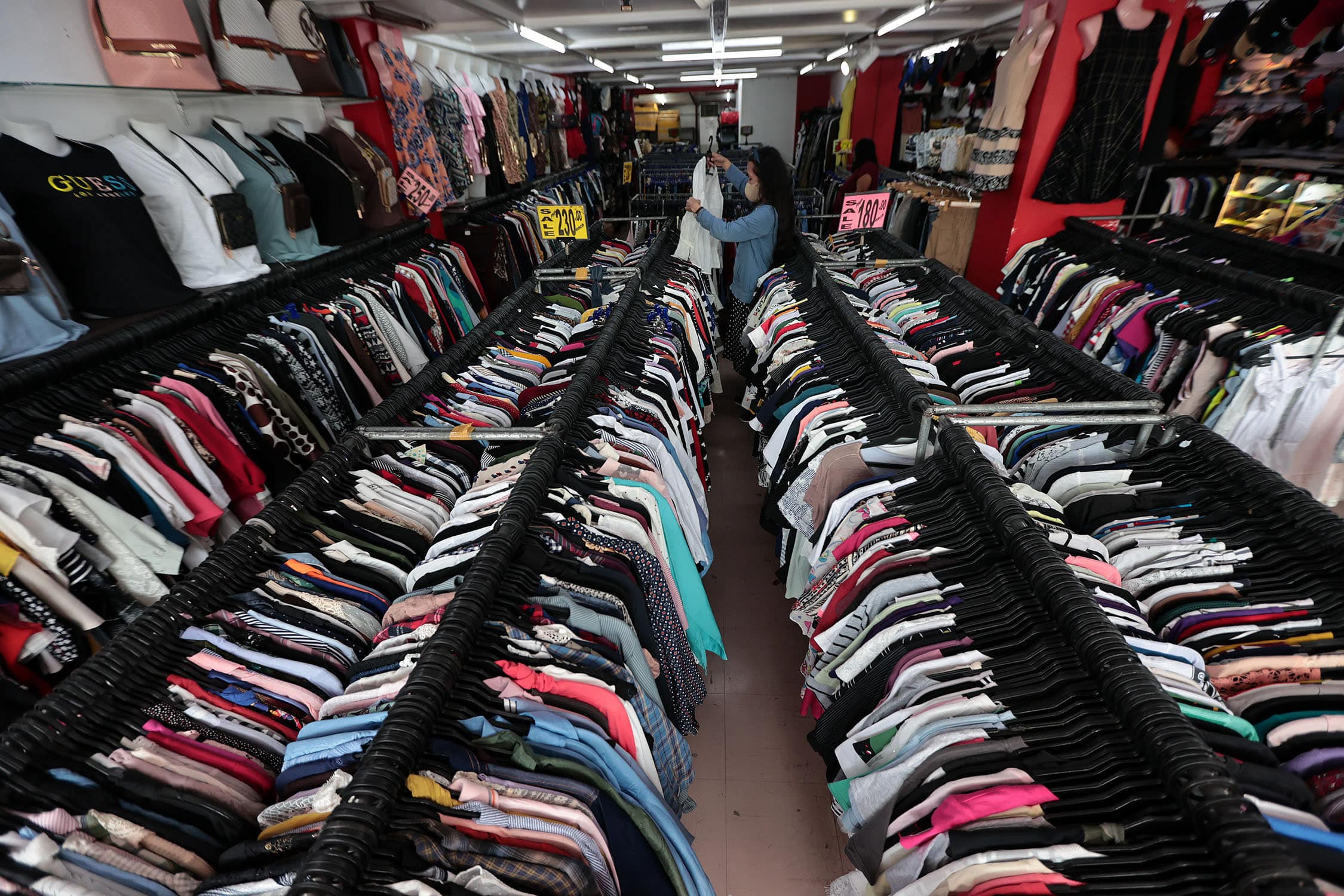‘Reloving’ preloved

SECONDHAND HEAVEN A store helper waits for customers at an “ukay-ukay” or imported secondhand garments store in Cubao, Quezon City, in this August 2022 photo. The secondhand market presents cost-effective options for consumers, allowing for significant savings while also promoting sustainability and less wastage. —Grig C. Montegrande
MANILA, Philippines — The sustainability mindset is not a new concept in Pinoy culture. We embrace reusing things, something that we learned from our parents. We reuse things to maximize their value, because “panghihinayang” (the feeling of regret if we let them go) is a trait we learned growing up.
We save plastic containers, plastic bags, glass bottles, and other things for later use. We buy things from the secondhand market, also known as thrifting–cars, clothes, furniture–often to get more value for our money or to enjoy the “thrill of the find” in vintage shops. We bring broken shoes and bags to repair shops to extend their life.
These practices are little things that support a circular economy. For sustainability, this consumption mindset is beneficial for our transition to a circular economy.
In the Philippines, we have already embraced the concept of a circular economy, whether we’re aware of it or not. It is an economic paradigm promoting maximum utilization of resources through recirculation of products and/or extension of the product lifetime. The concept is arguably a win-win solution in balancing economic growth and environmental sustainability. International organizations such as the UNDP and ADB recommend that we adopt circular approaches in resolving environmental, social, and economic challenges (e.g., food security, clean energy, and sustainable transport).
READ: ‘Circular economy’ goes to the grassroots
Many ordinary Filipinos recognize the mechanism for a circular economy through waste-to-resource solutions. maximizing utilization by extending a product’s usability or repurposing a used product—habits that are actually embedded in our Pinoy consumption culture.
The secondhand market is also one initiative that supports circular economy. In developed countries, this business model has advantages for both consumers and businesses. For consumers, the secondhand market presents cost-effective options for products, allowing for significant savings while valuing the novelty of their vintage finds. For the business sector, the secondhand market presents a viable business model that can be developed, by extending the use of unwanted items that would otherwise end up in landfills, thus reducing waste and the demand for new production.
In our travels, we have seen firsthand the popularity of secondhand retail outlets in developed countries. 2nd Street in Japan and Relove in Finland are stores that offer clothes, bags, watches, and other used personal items. In these stores, previously unwanted items are given a new life with a new owner “reloving” such preloved things.
Locally, ukay-ukay or vintage shops have gone mainstream, with some celebrities even styling clothes bought from them.
The secondhand market is a business initiative that our country can fully maximize as a way to embrace a circular economy. Given our Filipino mindset of valuing things because it is “sayang” (wasteful) if we throw them away, our cultural practices in fact testify to our resourcefulness, thus making the secondhand market an economically viable business model.
As these puzzle pieces (Pinoy consumption culture and the secondhand market) fit together, thrifting can become an even more powerful practice to help us conserve our resources.
Dr. Ivan Gue is the Chairperson of the Department of Mechanical Engineering, Gokongwei College of Engineering, De La Salle University. Dr. Jonna C. Baquillas is an Associate Professor at the Department of Marketing and Advertising, Ramon V. del Rosario College of Business in the same university. They are engaged in research and projects focused on circular economy, sustainability transitions, and sustainable consumption and production.